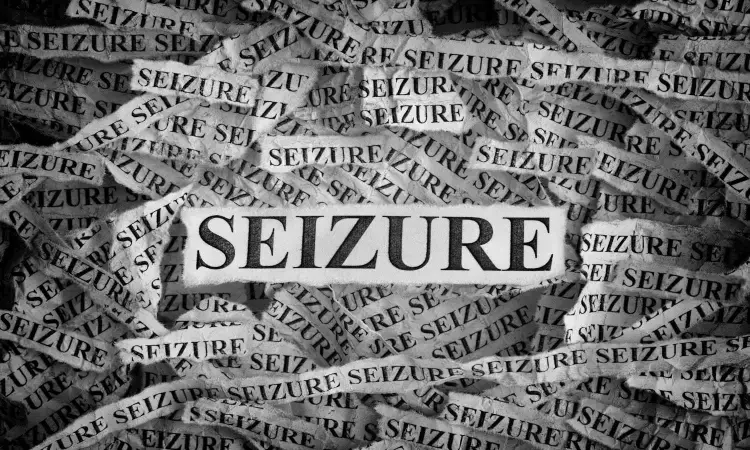- Home
- Medical news & Guidelines
- Anesthesiology
- Cardiology and CTVS
- Critical Care
- Dentistry
- Dermatology
- Diabetes and Endocrinology
- ENT
- Gastroenterology
- Medicine
- Nephrology
- Neurology
- Obstretics-Gynaecology
- Oncology
- Ophthalmology
- Orthopaedics
- Pediatrics-Neonatology
- Psychiatry
- Pulmonology
- Radiology
- Surgery
- Urology
- Laboratory Medicine
- Diet
- Nursing
- Paramedical
- Physiotherapy
- Health news
- Fact Check
- Bone Health Fact Check
- Brain Health Fact Check
- Cancer Related Fact Check
- Child Care Fact Check
- Dental and oral health fact check
- Diabetes and metabolic health fact check
- Diet and Nutrition Fact Check
- Eye and ENT Care Fact Check
- Fitness fact check
- Gut health fact check
- Heart health fact check
- Kidney health fact check
- Medical education fact check
- Men's health fact check
- Respiratory fact check
- Skin and hair care fact check
- Vaccine and Immunization fact check
- Women's health fact check
- AYUSH
- State News
- Andaman and Nicobar Islands
- Andhra Pradesh
- Arunachal Pradesh
- Assam
- Bihar
- Chandigarh
- Chattisgarh
- Dadra and Nagar Haveli
- Daman and Diu
- Delhi
- Goa
- Gujarat
- Haryana
- Himachal Pradesh
- Jammu & Kashmir
- Jharkhand
- Karnataka
- Kerala
- Ladakh
- Lakshadweep
- Madhya Pradesh
- Maharashtra
- Manipur
- Meghalaya
- Mizoram
- Nagaland
- Odisha
- Puducherry
- Punjab
- Rajasthan
- Sikkim
- Tamil Nadu
- Telangana
- Tripura
- Uttar Pradesh
- Uttrakhand
- West Bengal
- Medical Education
- Industry
Risk of epileptic seizures higher in kids after COVID-19 infection than after influenza

Children suffering from nonsevere COVID-19 infections are 55% more likely to develop epilepsy or seizures in the next 6 months than those who have influenza. The study has been published in Neurology.
"While the overall risk of developing seizures or epilepsy was low-less than 1% of all people with COVID-19, given the large number of people who have been infected with COVID-19, this could result in increases in the number of people with seizures and epilepsy," said study author Arjune Sen, MD, PhD, of the University of Oxford in England. "In addition, the increased risk of seizures and epilepsy in children gives us another reason to try to prevent COVID-19 infections in kids."
For the study, researchers looked at a health records network for people with COVID-19 infections. They were matched to people who were diagnosed with influenza during the same time period and who were similar in age, sex and other factors, such as other medical conditions. None of the participants had previously been diagnosed with epilepsy or recurrent seizures. The researchers then looked to see whether people developed epilepsy or seizures in the following six months.
There were 152,754 people in each of the COVID-19 and influenza groups.
People who had COVID-19 were 55% more likely to develop epilepsy or seizures over the next six months than people who had influenza. The rate of new cases of epilepsy or seizures was 0.94% in the people who had COVID-19, compared to 0.60% in those who had influenza.
"People should interpret these results cautiously since the overall risk is low," Sen said. "We do, however, recommend that health care professionals pay particular attention to individuals who may have more subtle features of seizures, such as focal aware seizures, where people are alert and aware of what is going on, especially in the three months following a less severe COVID-19 infection."
A limitation of the study was that researchers were unable to identify which specific virus variants people were infected with, which could have influenced results.
The study was supported by the British National Institute for Health and Care Research Oxford Health Biomedical Research Centre.
Reference:
Maxime Taquet, Orrin Devinsky, J. Helen Cross, Paul J Harrison, Arjune Sen. Incidence of Epilepsy and Seizures Over the First 6 Months After a COVID-19 Diagnosis: A Retrospective Cohort Study. Neurology, 2022; 10.1212/WNL.0000000000201595 DOI: 10.1212/WNL.0000000000201595
Dr Kamal Kant Kohli-MBBS, DTCD- a chest specialist with more than 30 years of practice and a flair for writing clinical articles, Dr Kamal Kant Kohli joined Medical Dialogues as a Chief Editor of Medical News. Besides writing articles, as an editor, he proofreads and verifies all the medical content published on Medical Dialogues including those coming from journals, studies,medical conferences,guidelines etc. Email: drkohli@medicaldialogues.in. Contact no. 011-43720751


